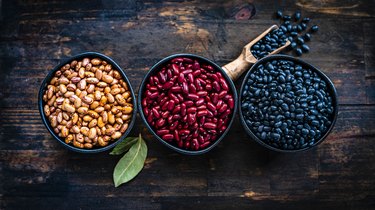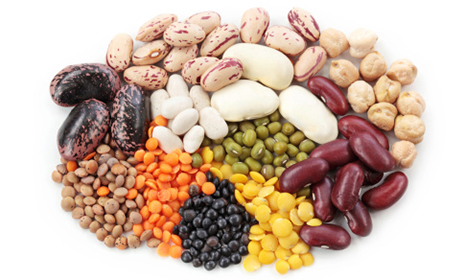
In many parts of the world, pinto and black kidney beans go hand in hand with rice. In epidemiological studies, there has been a correlation between bean consumption and decreased rates of chronic diseases, including type 2 diabetes. According to the Centers for Disease Control and Prevention, there are 25.8 million people in the U.S. suffering from type 2 diabetes, with a disproportionate number of African-American and Hispanic adults.
Kidney beans are rich in dietary fiber and contain a significant amount of complex carbohydrates. These carbohydrates break down into simple sugar in the digestive tract, which is used by the body as a major source of energy. Because kidney beans contain high amounts of magnesium, they are a great option for diabetics. The high fiber content and low glycemic index make them a healthy option for people with diabetes. Despite the fact that kidney beans are packed with nutrients, they are not necessarily healthy for people with high blood sugar levels.
Aside from being good for diabetes, kidney beans are rich in protein and natural fiber. They also contain a variety of vitamins and minerals that are beneficial to people with diabetes. Because kidney beans contain a number of nutrients that are important for diabetes, the American Diabetes Association considers them a "super food." And their low fat content and reduced sodium content make them an excellent choice for those with diabetes. They are also a great addition to any meal!
Kidney beans are rich in dietary fibre. This is an important factor for people with diabetes, as soluble fibre helps regulate blood cholesterol. Soluble fibre is essential for regular bowel movements. As a result, kidney beans are a great choice for diabetics. However, you should not eat too much if you have a high glycemic level. Even if they are not as healthy as they claim to be, you should still include them in your diet.
In addition to being a good source of protein and fiber, beans are also good for people with diabetes. These beans are rich in high quality carbohydrates and lean protein. The high fiber content also helps maintain a healthy weight and maintains regular bowel function. For people with diabetes, these beans are a great choice. The health benefits of these legumes are numerous and they will bring great health benefits to their patients.

The best way to eat more beans is to increase your protein intake. They are rich in protein and natural fibers. In fact, the American Diabetes Association has named beans a superfood because they contain several nutrients essential for diabetics. In addition, the protein and fiber found in beans are also good for the heart. They have the lowest glycemic index of any food and can be used to control diabetes when combined with a natural supplement D-norm in a wide variety of situations.
In addition to being a good source of protein, beans contain significant amounts of dietary fiber. A cup of beans contains about 13 grams of dietary fiber, which is essential for lowering blood cholesterol levels and lowering the risk of heart disease. In addition to being high in fiber, beans are a low glycemic food that is safe for people with diabetes. They are also rich in fiber and can be consumed by people with a high glycemic index.
While it is true that some people with diabetes can eat beans without any problems, they should first check with their doctor before starting a new diet plan. Despite their high fiber content, beans are also high in carbohydrates and low in fat. Because they are low in fat and have a very low glycemic index, they are safe for diabetics. If you are looking for the best source of fiber, look no further than beans from Spain.
In addition to being a good source of dietary fiber, beans are also a good source of protein. Unlike many other foods high in cholesterol and saturated fat, beans are a great choice for people with diabetes. In addition to being high in fiber, beans are also low in calories. People with type 2 diabetes should avoid eating too much red meat and processed foods. If you need to, keep in mind that the best option is to limit your intake of meat and dairy products.